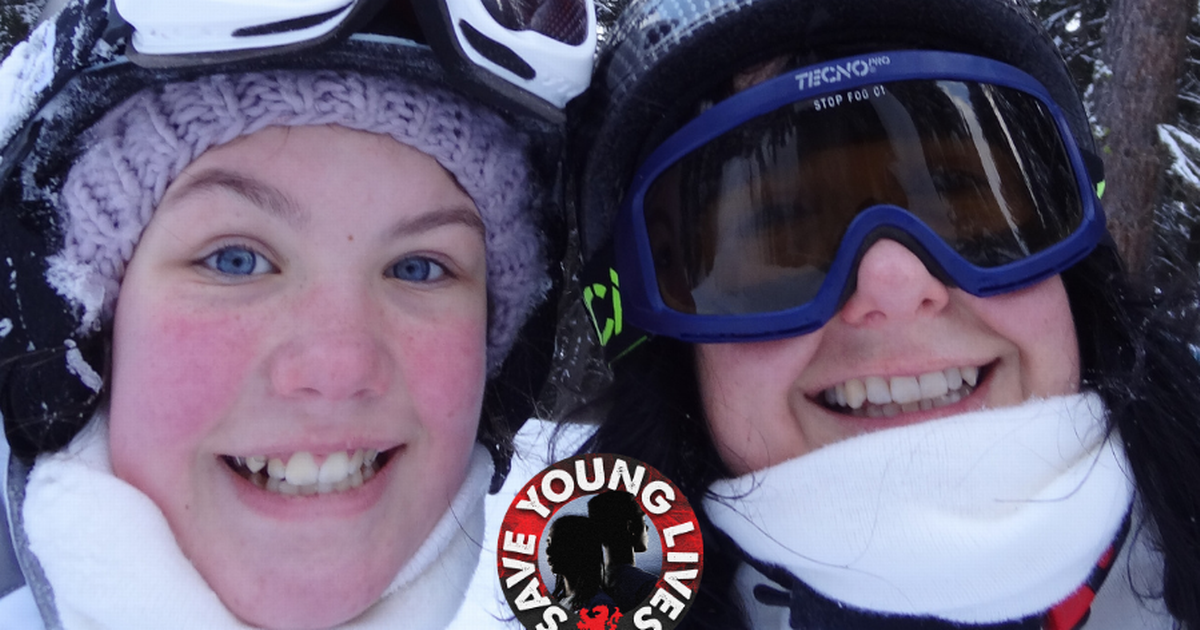Ruth Moss, who lost her 13-year-old daughter Sophie to suicide in 2014, said the figures were “horrifying and shameful”.
04:30, 26 Nov 2025Updated 11:23, 26 Nov 2025
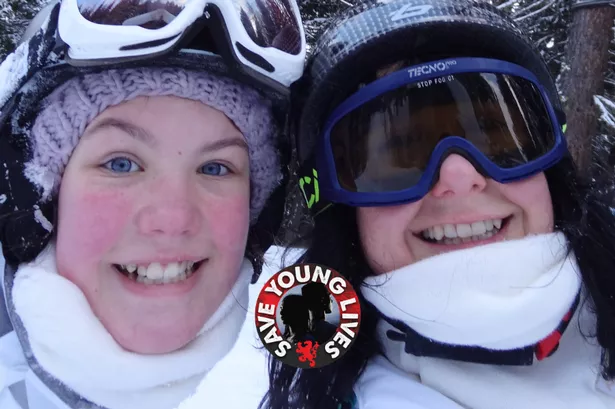 Ruth Moss with her beloved daughter Sophie
Ruth Moss with her beloved daughter Sophie
The mum of a teenager who took her own life after struggling to get mental health support has hit out at disturbing figures that reveal a third of kids have been rejected from waiting lists.
Ruth Moss, 54, who lost her daughter Sophie to suicide in 2014, says she has been left “horrified” by the level of vulnerable children being snubbed by Child and Adolescent Mental Health services (CAMHS). Between April and June this year, statistics from Public Health Scotland show that 2,565 referrals to CAMHS were knocked back – which made up for a third of all cases.
Reacting to the figures, Ruth, from Edinburgh, told the Record: “These figures are horrifying and shameful. The vast majority of these referrals are done by health care professionals and their imperative judgement is being overruled before a child is even seen.
“That creates a very dangerous situation for these children and it’s unacceptable. These young people are being outright rejected by the services they need – this a point blank failure to help our younger generations.
“Behind every statistic here is a family that has taken a very difficult decision to try and get their child additional help. At the very least, they should be taken into the system to be assessed, not outright rejected.
“We can’t hide away from the fact that the people referring to these youths are professionals – they’re not just people off the street. Where do these children go next?”
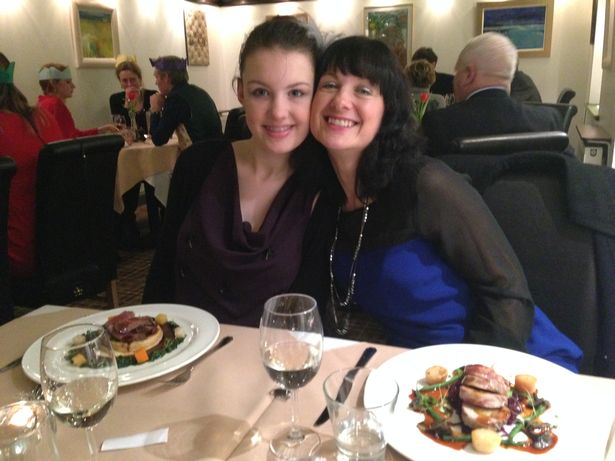 Sophie with mum Ruth(Image: NSPCC )
Sophie with mum Ruth(Image: NSPCC )
Ruth has spoken out as part of the Record’s Save Young Lives campaign, which was launched earlier this month in response to a mental health crisis among kids. As part of the campaign, we are demanding every political party in Scotland to promise to reduce waiting times for kids’ mental health services in their Holyrood election manifestos.
A Fatal Accident Inquiry (FAI) into Sophie’s death in 2020 ruled that the tragedy could have been avoided if she had received better support. The schoolgirl l had been referred to CAMHS by her GP as a matter of urgency, however, her case was branded as being “non-urgent”.
Ruth said: “It took a long time for Sophie to get help from CAMHS. When she eventually got in, her case was down-graded and then she eventually died by suicide. Her referral was initially put down as being urgent, but they looked at it and thought it didn’t need urgent attention.
“When families take their children to a doctor because of their mental health, they’re desperate. I’m not laying the blame on CAMHS’ door here because they’re under a lot of pressure.
“This is a resource issue. There is a lot of need for help for children in Scotland and our services are simply not invested in enough. The government is failing our children again and again.”
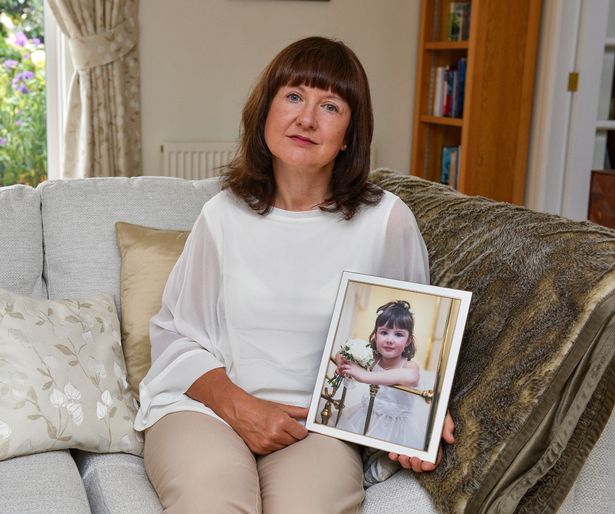 Sophie tragically died by suicide in 2014(Image: Dave Johnston)
Sophie tragically died by suicide in 2014(Image: Dave Johnston)
The Scottish Children’s Service Coalition – an alliance of leading providers of specialist care to vulnerable children and young people – said the figures were “deeply disturbing”.
A spokesperson said: “Statistics indicating that almost a third of those children referred to treatment for specialist mental health services are rejected are deeply disturbing.
“Despite increased political focus on tackling this issue over the last few years, we have seen a rise in the numbers of those rejected, from just over a fifth three years ago to almost a third now.
“Behind each of these statistics is a child or young person crying out for help. Those children who are rejected may not be offered alternative care or be signposted to suitable community-based support, making them invisible and leading to worsening mental health over time. For those that are signposted, this is often to less specialist services, which simply do not have the capacity or expertise to meet their needs. This can lead to higher social, educational and health costs later in life.
“The high rejection statistics suggest CAMHS may be operating with a very high threshold for acceptance, effectively reserving care for only the most acute cases. While prioritising urgent cases is understandable, this may leave many children who still need help but don’t meet the threshold in a gap — they may not be ‘sick enough’ for CAMHS, but too ‘unwell’ for non-specialist services.
“We need greater investment in specialist CAMHS, to ensure that these rejection rates do not remain stubbornly high. In addition, we also need to deliver greater mental health support outside CAMHS, such as school-based mental health teams, to support children turned down by CAMHS.
“It also needs to be ensured that when referrals are rejected, there is clear signposting to other mental health services, with follow-up, so that children are not simply left without options.”
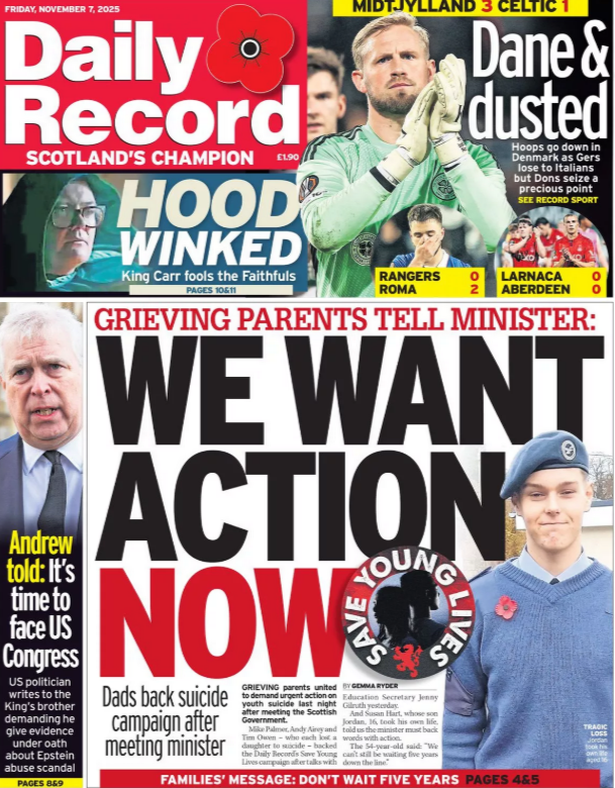 The Record’s Save Young Lives campaign
The Record’s Save Young Lives campaign
Scottish Labour mental health spokesperson Paul Sweeney MSP said: “Scotland is in the grip of a mental health crisis, but far too many children and young people are being turned away from services.
“NHS staff are working tirelessly to try and support them, but the reality is that our health service has been pushed to breaking point due to years of SNP mismanagement.
“We cannot allow struggling young people to fall through the cracks. The SNP must ensure that CAMHS services can cope, and that children are able to get the support they need.
“Scottish Labour will continue to call for better mental health services across the country, including a dedicated mental health worker in every GP surgery.”
The Record has approached the Scottish Government for comment.
